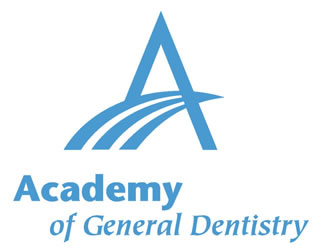Fact Sheet: Oral Care and Cancer
Cancer Care
Patients diagnosed with cancer have special needs when it comes to their dental treatment. It is important for patients and their dentists to discuss dental treatment, its unique aspects during cancer treatment, and what effects cancer and cancer treatment can have on the patient's mouth.
What Effect Does Cancer Have on the Mouth?
Cancer—no matter where in the body it occurs—can affect teeth, gums, salivary glands, and other tissues in the mouth.
How Does Cancer Treatment Affect the Mouth?
Chemotherapy and radiation treatments can affect the mouth, causing side effects that may include:
- Pain in the Mouth and Gums
- Mouth Sores (Oral Mucositis)
- Dry Mouth (Xerostomia)
- Tooth Decay
- Burning or Swollen Tongue
- Jaw Stiffness
- Problems Eating, Speaking and Swallowing
- Decreased Ability to Taste
- Gum Disease and Bleeding
- Weakened Immune System
What Should a Patient Do Before Beginning Cancer Treatment?
It is important for you to schedule a thorough dental exam at least two weeks before cancer treatment begins. You should be sure to update your medical history at your dentist's office and tell your dentist about your physician, treatment, and other aspects of your cancer diagnosis so that your dentist knows how best to treat you and support your physician's treatment plan.
How Should Cancer Patients Care for Their Mouths?
Patients who have cancer should continue a regular oral hygiene program, including brushing teeth and gums with a soft bristle brush two to three times per day. If the bristles are too hard, either you can rinse the toothbrush in hot water for 15 seconds to soften them or use an ultra-soft toothbrush. Use a mild-tasting toothpaste because flavored pastes might irritate your mouth. If toothpaste does irritate your mouth, you can rinse with a solution of salt and water. You also can use an antibacterial mouth rinse for gum disease, but avoid mouth rinses that contain alcohol. Gently floss your teeth at least once per day.
What can Patients Do About Dry Mouth?
Cancer patients who experience dry mouth should clean their mouths and teeth at least four times per day and floss at least once per day. But if there are areas of bleeding or soreness on the gums, floss gently or avoid flossing those areas altogether. Cancer patients need to use a fluoride toothpaste when brushing their teeth and apply a fluoride gel as recommended by their dentist. Patients also can rinse their mouths several times per day with a solution of baking soda and salt in warm water, followed by rinsing with water. Your dentist also may recommend a mouth rinse you can use in addition to regular brushing and flossing.
What Should a Cancer Patient Eat?
Because of the changes in the ability to taste, patients who are undergoing cancer treatment may find it more difficult to eat the foods they are used to eating. Cancer patients should eat a balanced diet, including soft, moist foods like cooked cereal, mashed potatoes, and scrambled eggs or as recommended by their physician. It is important for patients undergoing cancer treatment to get the right amount of nutrients and calories. If needed, patients can take vitamin supplements that provide healthy minerals and calories. Avoid using tobacco and drinking alcohol during treatment. Acidic foods, such as grapefruit orange juice, and tomato sauce, may cause irritation. Patients also should avoid acidic, high-sugar beverages like soda and energy drinks.

